| | | 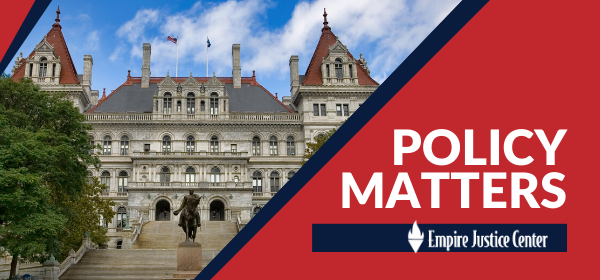 | | Policy Matters - October 2020 Welcome to the October edition of our newsletter, Policy Matters. In this edition we reveal the connections between redlining and COVID-19, how access to justice means access to food and housing, ways to protect the voting rights of survivors of domestic violence, and how law school clinics may be a key part of New York’s recovery from the pandemic. You can read on our website here. |
| |
|
| 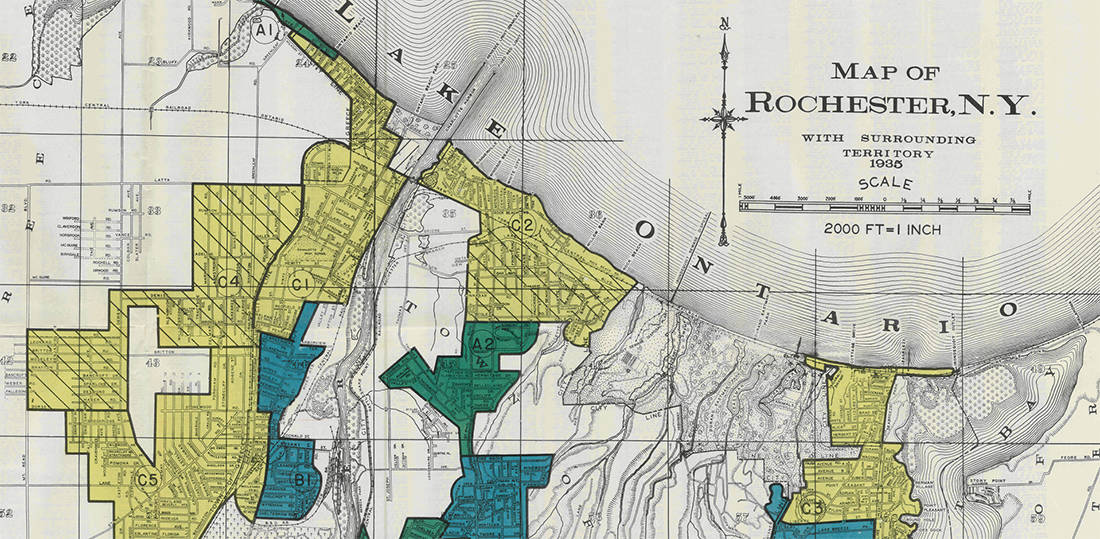 | Redlining’s Deadly Effects Continue Into the Present Day Racial injustice and discrimination have played a huge role in how different communities have been affected by COVID-19, with communities of color suffering disproportionately negative outcomes compared to wealthier and whiter areas. Ruhi Maker, Senior Attorney, and Barbara Van Kerkhove, Policy Analyst, have done a deep dive into the long-term health effects of redlining in Black and Latinx communities in Rochester in this article: COVID-19 Disparities In Rochester, NY: The Legacy Of Redlining In The City Of Frederick Douglass And Susan B. Anthony, published by the National Community Reinvestment Coalition. Their research breaks down how people living in communities with histories of redlining experience greater incidences of chronic health conditions and are at greater risk from COVID-19, and what needs to be done to effectively address segregation, discrimination and the disparate impact of COVID-19. |
| | | Access to Justice Means Access to Food, Housing, and Health Care On September 21 we delivered testimony to the Permanent Commission on Access to Justice’s 2020 Hearing on Civil Legal Services. Kristin Brown, President & CEO, Alexia Mickles, Health Attorney, and Sandra Southwell, the daughter of an Empire Justice client, all testified before Chief Judge DiFiore on the importance of funding for civil legal services and how these services can change and even save lives by ensuring access to housing, food, and health care. |
| | 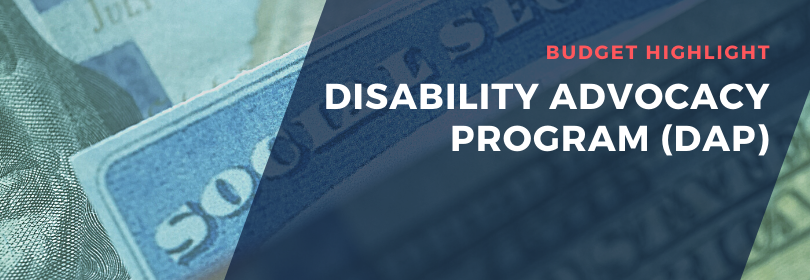 | Budget Highlight: Disability Advocacy Program (DAP) The leaves are turning, the daylight is waning, and the State Budget season is ramping up – despite a year where it feels like the budget season never truly ended. As the specter of a Coronavirus-inspired financial crisis looms large, Empire Justice Center is committed to continuing to deliver ever more critical civil legal services to the burgeoning number of low-income New Yorkers who are being affected. To that end we will be highlighting a number of our programs over the coming months – what they are, who they serve, and why they’re important. In this edition we will be focusing on the Disability Advocacy Program, or DAP. What is DAP? Recognized as a model across the nation, New York State's Disability Advocacy Program (DAP) has provided legal assistance to low income disabled New Yorkers seeking Supplemental Security Income (SSI) or Social Security Disability (SSD) since 1983. As statewide coordinator of DAP, Empire Justice’s DAP unit also advocates on behalf of DAP clients with the Social Security Administration (SSA), and communicates the latest changes in procedure to DAP advocates through DAP’s robust statewide network, which offers services in every county in New York State. |
| 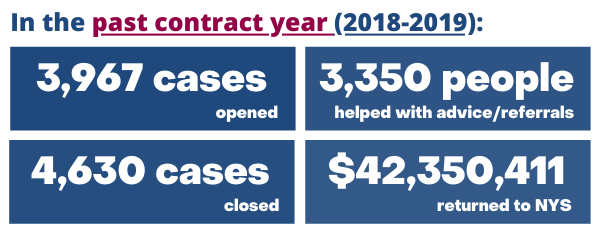 | Why is DAP Important? DAP serves thousands of disabled New Yorkers every year – gathering medical evidence, representing clients at appeals hearings, and connecting clients to other important services, like foreclosure prevention, SNAP, and health care. DAP cases take years to complete, and for people facing the complexities of the Social Security system, having a DAP advocate is often the difference between a victory a year, or two, or more down the line, and another denial. DAP also returns millions of dollars to New York every year in the form of retroactive benefits to claimants, interim assistance recovered by the State, and savings for counties as DAP moves disabled people from locally funded Safety Net benefits programs onto longer-termed, federally-funded assistance. That’s over $1.3 billion since the inception of the program. |
| DAP advocates are already developing solutions to the challenges clients are facing due to COVID-19. But as COVID-19 continues, disability claims in NYS will inevitably increase. The Disability Advocacy Program (DAP) will be essential to addressing the crisis. |
| You can learn more about DAP at our website, or use our DAP Map to find which providers offer services near you. |
| | Voting Rights for Survivors of Domestic Violence Survivors of domestic violence experience unique barriers to voting – an abuser may try to control a victim’s movements, including whether they can get to a voting booth, while registering to vote may reveal the legal address of a survivor who has escaped to their abuser or stalker. On September 25, Amy Schwartz-Wallace, our Senior Domestic Violence attorney, in partnership with advocates from Legal Aid Society NYC, presented the webinar training, Reducing Barriers to Voting for Domestic Violence Survivors in New York, available at this link on our website. This program covers barriers to voting for domestic violence survivors, access to voting after fleeing from abuse, registration privacy and confidentiality concerns, and information on New York’s laws designed to provide survivors who wish to vote with greater opportunity for flexibility and safety. |
| | | Law School Clinics Should Be a Key Aspect of COVID-19 Recovery Before the pandemic, over half of the civil legal needs of low income New Yorkers went unmet – a gap that is sure to grow by leaps and bounds as various pandemic relief measures, such as the moratorium on evictions, continue to expire. But this article, co-authored by Empire Justice President & CEO Kristin Brown, may have a key to part of the solution to New York’s recovery: law school clinics. Kristin was joined other legal advocates Horace E. Anderson, Jr. (Dean, Elisabeth Haub School of Law, Pace University), Barbara Finkelstein (CEO, Legal Services of the Hudson Valley), and Cindy Kanusher (Pace Women’s Justice Center) to draft this article for the Westchester Lawyer, the monthly magazine for the Westchester County Bar Association. |
| |
|
| 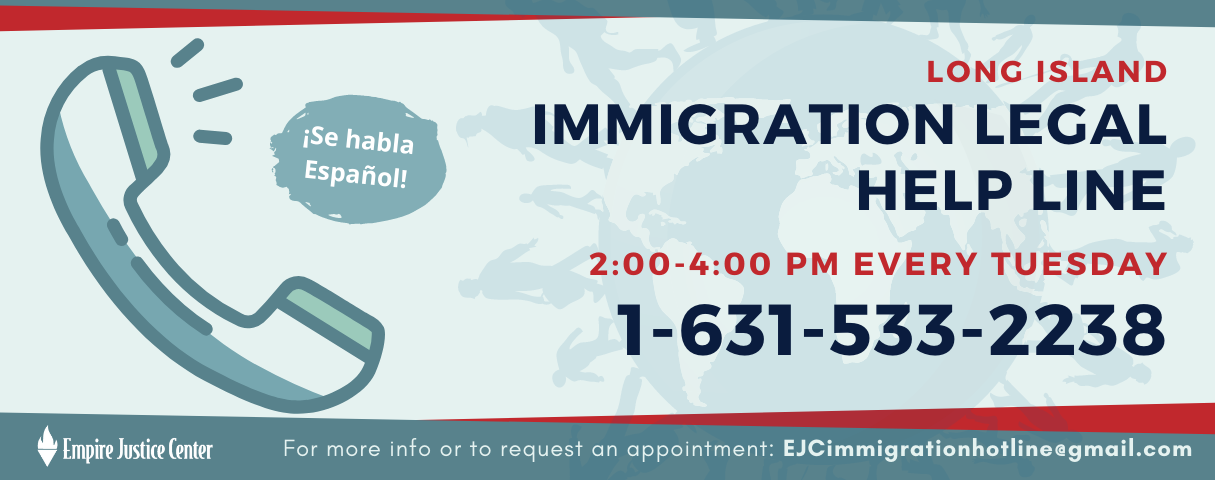 | Long Island Immigration Legal Help Line Our Long Island Immigration Legal Help Line is available every Tuesday from 2:00-4:00 pm, at 631-533-2238 to speak to an immigration attorney from Empire Justice Center who will answer your questions on your legal rights. Or email us at EJCimmigrationhotline@gmail.com to make an appointment. ¡Se habla Español! |
|
|
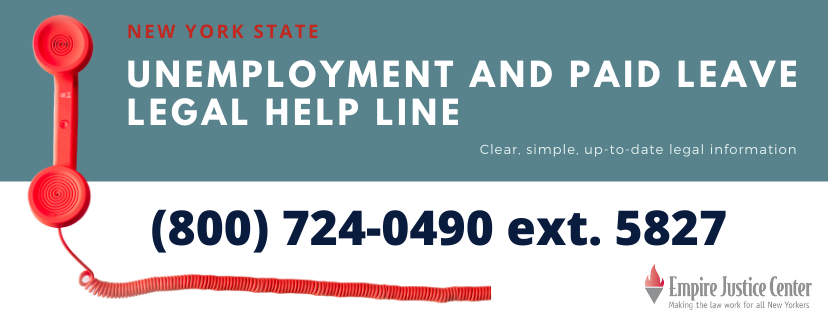 | Unemployment and Paid Leave Legal Help Line Our Unemployment and Paid Leave Legal Help Line is available every day from 9:00am-5:00pm, at 800-724-0490 ext. 5827. If you have questions about unemployment or paid leave, you can call the help line and attorneys will provide legal advice and counsel regarding unemployment benefits, paid leave, and job protections. |
|
|
| | 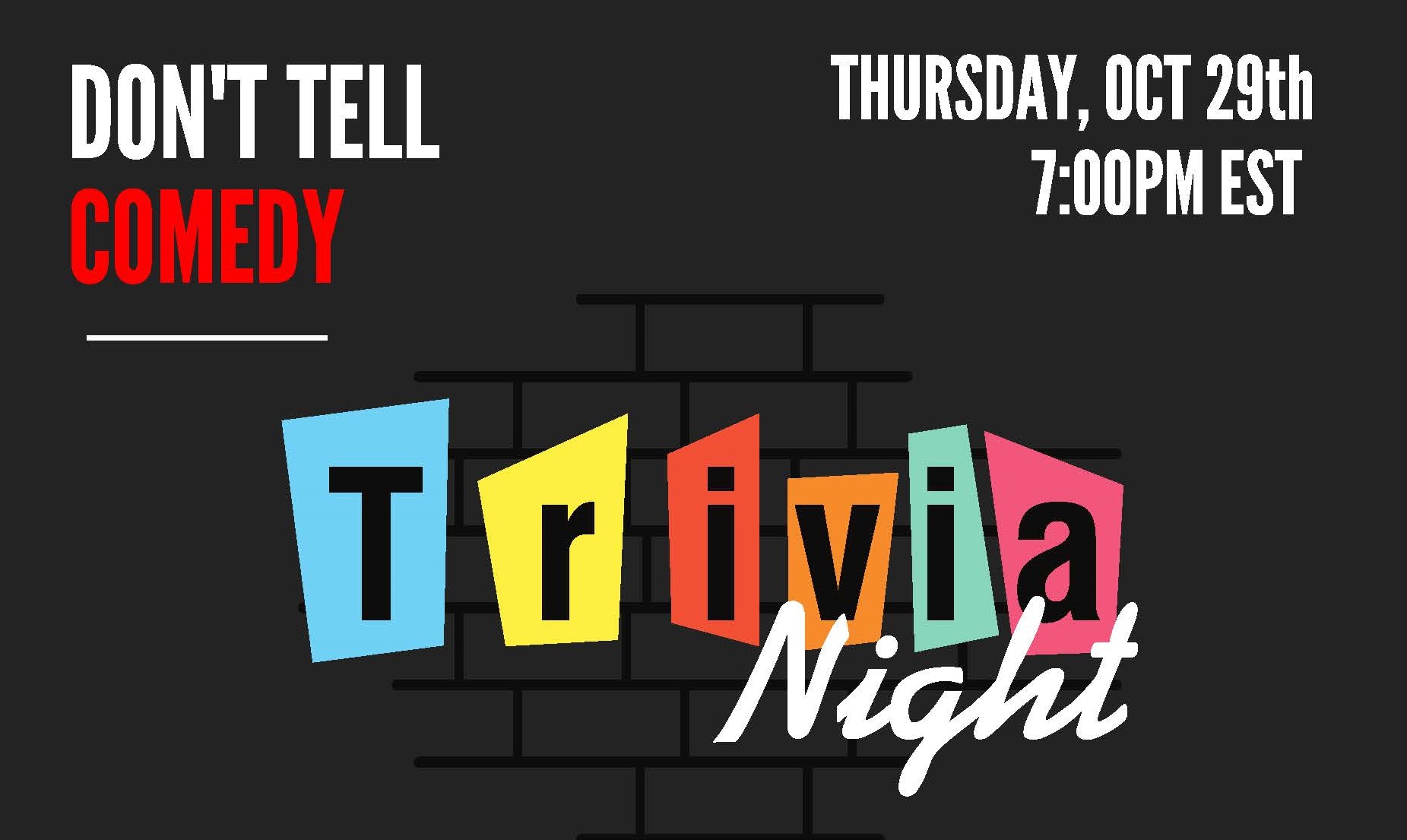 | Comedy for a Good Cause Looking for some fun this fall? Join us for a Don't Tell Comedy Trivia Night on Thursday, October 29th at 7:00pm EST. Get ready to laugh, play trivia and win prizes! $20 to play - ALL proceeds benefit Empire Justice Center! Sign up here! |
| |
|
| Thank You For Reading If you’d like to keep up with our policy work, follow us on Twitter and Facebook, or visit the Policy Central page on our website. You can find all of our COVID-19 free legal resources on our website, and if you need help, you can find contact information for each of our offices here. Have a safe and happy Halloween! The Empire Justice Policy Team |
| | |
|
| | | |
|
|